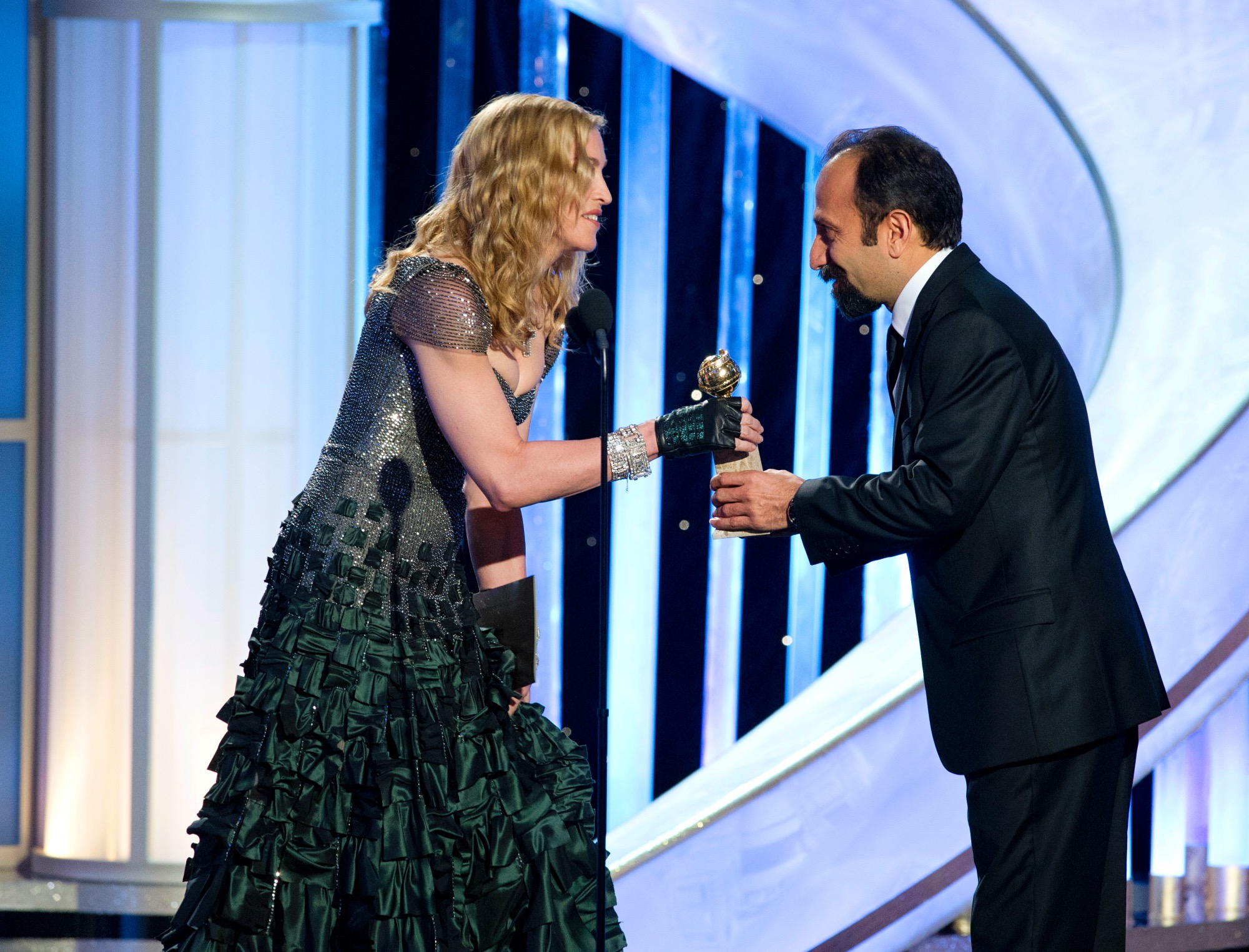
- Golden Globe Awards
2012: Asghar Farhadi – A Separation of Viewpoints

When Iranian writer-director Asghar Farhadi was asked to participate in a Sight and Sound film poll in 2012 by naming his list of the greatest films of all time, his first choice was Akira Kurosawa’s Rashomon (1950).
That choice should not come as a surprise to anyone familiar with Farhadi’s films. Especially the film that won him his first Golden Globe, and established his place as one of the most interesting filmmakers of our time, A Separation.
The essence of Rashomon is the irrefutable statement that each participant of an event views it through his or her very personal lens. In a psychologically modified way, this is also the essence of Farhadi’s films
In A Separation, he follows the dissolution of a marriage by allowing all diverse perspectives to become comprehensible. He does not evaluate viewpoints or decisions. Even if the statements of the persons involved are contradictory, they are not necessarily seen as morally wrong. Farhadi deeply understands the men and women of his creation, and he patiently leads viewers to do the same.
Farhadi, who also wrote the movie, introduces us to a secular, middle-class family living in a modest apartment in Tehran. They are Nader, his wife Simin, and their 11-year-old daughter Termeh. Through their interactions, we get a sense of the rigid social structures of gender, class, and religion in contemporary Iran.
Simin wants out. She has organized visas for the family and is ready to leave the country. But Nader blocks their exodus, as his world has a different focus: He feels obliged to stay in order to care for his father, who suffers from Alzheimer’s disease.
Simin sees no other way to break this impasse other than filing for divorce. At the family court, she levels an accusation at Nader: “His concern for his father is only an excuse.” But the court rejects her application. The family breaks up, and Simin moves back in with her parents without Termeh.
Emotions, already very frayed, get even more tense as Nader hires a deeply religious woman with a violent husband from a poor part of town to take care of his father during the day. Another totally different worldview comes into play, making a horrendous clash virtually inevitable.
Farhadi is no stranger to the intricate social realities of his country. In September 2010, he was temporarily banned from filmmaking, due to his expressed support for ostracized Iranian directors Mohsen Makhmalbaf and Jafar Panahi.
But fortunately, since his Golden Globe win for A Separation at the 2012 Golden Globes, Farhadi has been able to turn out more remarkable work, including The Past, which in 2014 earned him his second Golden Globe nomination for Best Foreign Language Film (now Best Non-English Language Film). Farhadi has also been nominated in 2017 for The Salesman, and in 2022 for A Hero.

